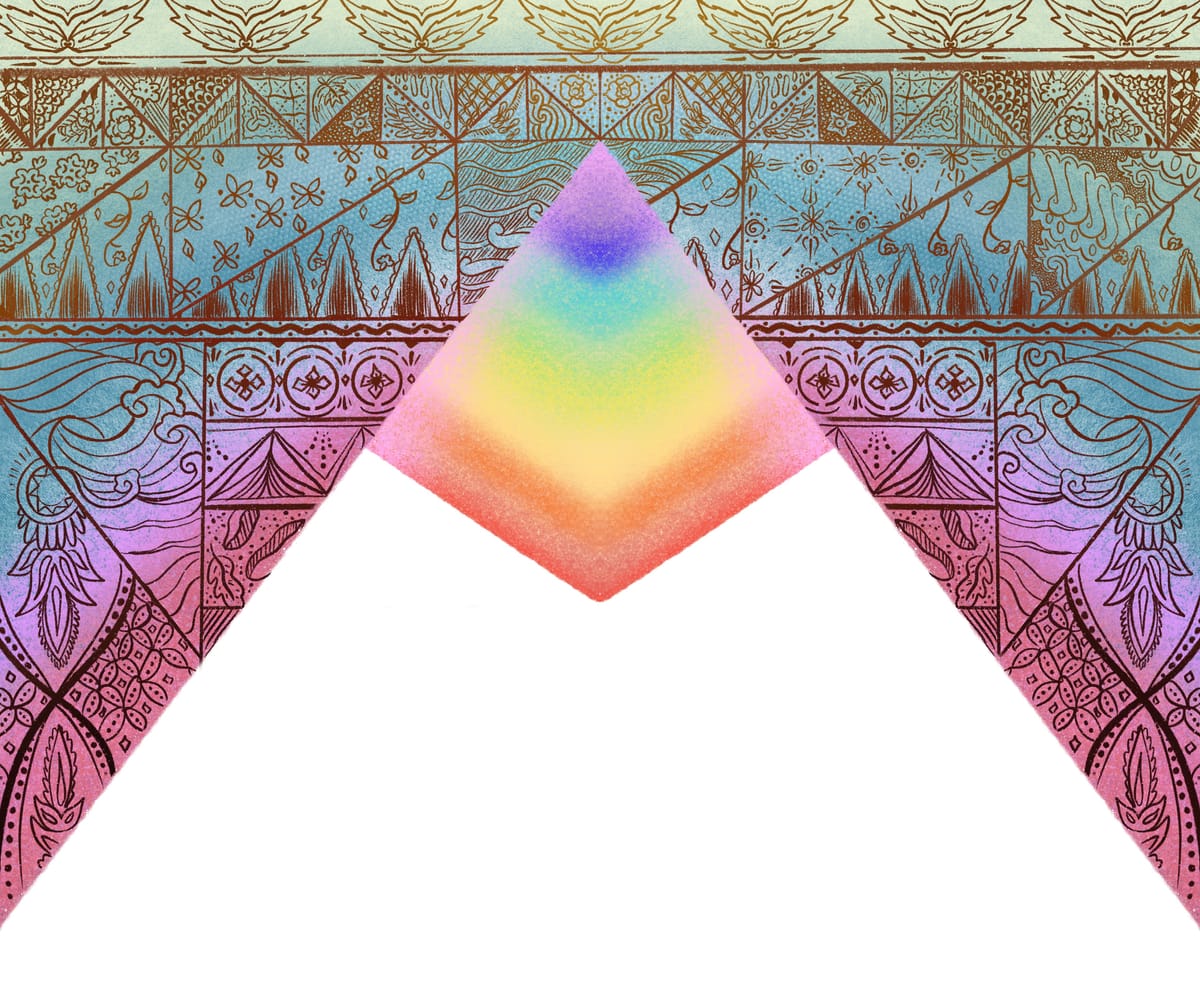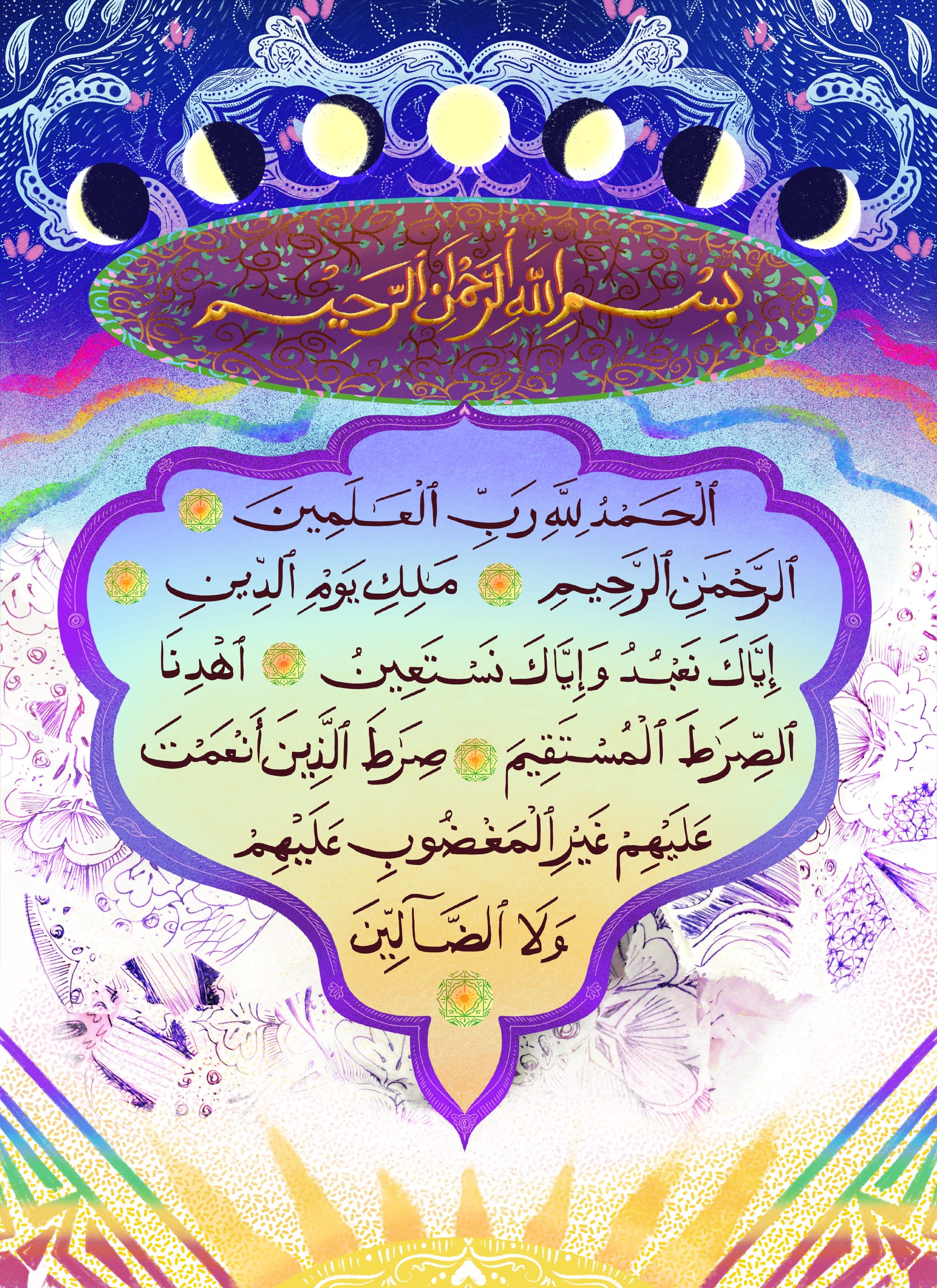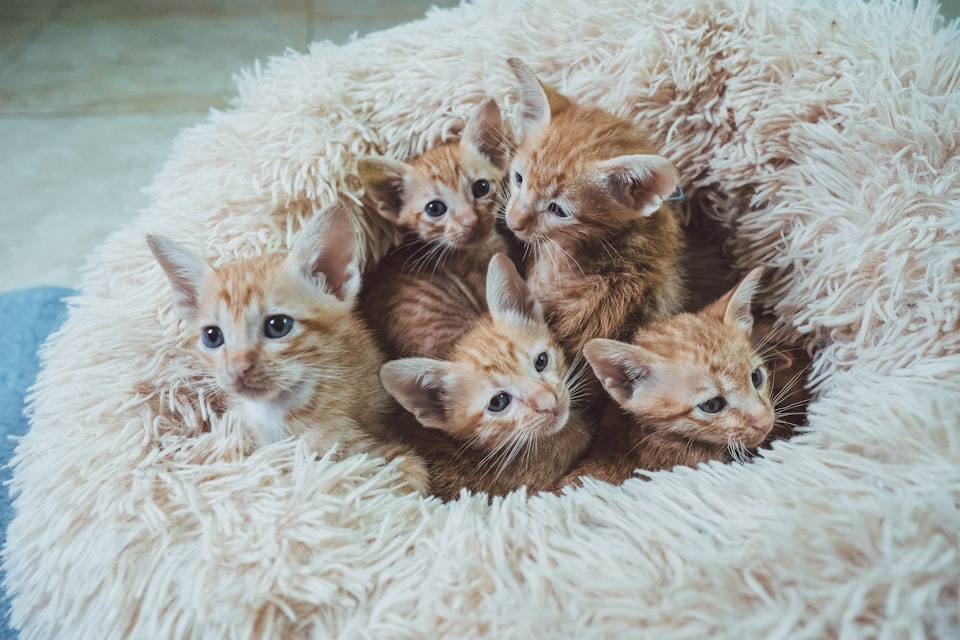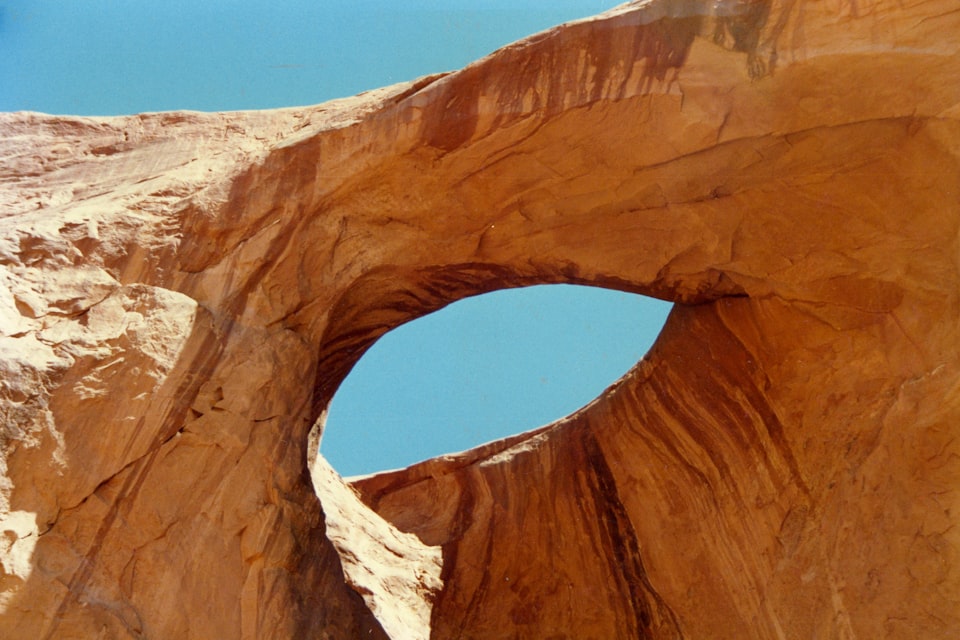Describing the Muslims we live with (The Signs In Ourselves, Part 2 of 12)
How would you explain the interaction of Islam with politics, geography, and history in your social context to diverse Muslims from somewhere else?

In this part and the one before, we hear from those who are finding the language to describe their gender, their identity, the people they want to be in relationship with, and set the locations for their story. Exercises 1 and 2 invite you to introduce yourself to the conversation.
- The home of our conversations
- Describing our Muslim social contexts
- Exercise 2


Q. How would you describe the interaction of Islam with politics, geography, and history in your social context to diverse Muslims from somewhere else?
"I don't have a Middle Eastern context in my faith at all, even our clothing is different."
THE HOME OF OUR CONVERSATIONS
🇲🇾
He describes the struggle between Malaysia’s progressive principles and conservative implementations. “Theologically, Malaysia is from the Sunni school of thought, so Ahl Sunnah Wal Jamaah is the big umbrella. Most Southeast Asian countries subscribe to the Ashaeerah Maturidiyah school of theology. In terms of fiqh or jurisprudence, Malaysia is Shafii (Shafeeyah). Our Federal Constitution is very secular and liberal. The Malay royalty disagreed to put Islam as the religion of the federation when called upon by the drafters of our constitution, in order to maintain the secular characteristics of this country. That's why there are three cases I can think of, one even from 1988, where the consensus was that Malaysia cannot be interpreted as an Islamic country, because Islam in the constitution is restricted only to ceremonial traditions and was expanded throughout the years by the courts. So from a constitutional perspective, we are democratic and liberal in principle. But the problems arise in implementation. The bureaucracy and our civil servants make that difficult with a very conservative implementation. In our political conditions, we are a traditional conservative society that is very patriarchal and heteronormative. In Malaysia we generally use politics of identity, centering the Malay identity, Muslim identity, and heterosexual identity.”
🇲🇾
They moved 300 km away from Kuala Lumpur to rebuild a life away from an abusive family by living amongst ancestors. “Penang is a place I chose to live in to be closer to water. It's also my only ancestral land in this country. I didn't know why that was important to me before, seeing as how I don't feel connected to my biological family or to how Islam is practiced here in the mainstream Malay culture, but I believe places are alive with their own personalities - personalities informed not just by history, structure, or people, but informed also by the guardians and ancestors who lived and tended on the lands from ages past. Being here, being able to hear and feel my ancestors more keenly - like feeling the same waters that my ancestors felt when they first landed here - has played a crucial role in developing a healthier relationship to my spirituality. It's taught me not to deny the validity of my experiences - to view the past as fertilizer for possibilities and potential.”
🇮🇩
She points out that Islam’s unique integration into the Nusantara region. “Before Islam arrived to what we now call Indonesia there were already many faiths: animism, Hinduism, Buddhism. The people of the Nusantara region have specific beliefs and traditions which they've preserved even until today. Islam interacts with these beliefs in Indonesia by adapting through cultural assimilation. In Central Java, you can see interactions between Islamic architecture and Hinduism. I would say that 'Islam Nusantara' emerged as a notable idea in 2014, as a way to describe an Islam that is different from an Arab-dominated Islam in the Middle East. I don't have a Middle Eastern context in my faith at all, even our clothing is different.”
🇮🇩
Part of that integration was the rise of pesantren culture as an Indonesian social institution. He grew up in one of these Islamic boarding schools where God was a social experience. “The term pesantren existed before Islam did in Indonesia, as places to learn about spirituality and religious philosophies. There are now pesantrens at all levels in the education system and they are a very important social institution— what makes our learning culture unique is how we localise religion. In the pesantren, people practice Islam and locality simultaneously rather than with an Arabised framework or culture. There is a shifting trend now where women leaders wear the hijab, but historically, pesantren leaders didn’t do this and still practiced Islam in a localised way.”
🇸🇬
He is a tutor who lives with his parents and volunteers for Singaporean collectives involving Muslim welfare, Muslim youths, and queer people. “Singapore is really secular, so the concept of God is non-existent in the public sphere. Religion is talked about, but God is not. The government doesn't care if you are Sunni or Shia. Muslims are a minority in Singapore, but a sizable one. There are multiple layers to our minority-ness. Since we are a cosmopolitan island, we have Indian Muslims, Chinese Muslims, Iranian Muslims, Muslims from many sects, but all of them are not acknowledged much. All talk of "Singaporean Muslims" tend to refer to Malay Sunni Muslims, the face of Muslims in Singapore. Non-Sunni non-Malay Muslims are probably sidelined the most, even if they are not legally discriminated against— with the exception of Ahmadi Muslims who are not legally considered Muslim and can't be buried in Muslim cemeteries in Singapore. The tensions are internal, and repercussions exist within their bubbles. There is a tendency for Singaporean Malay Muslims to think of Islam as only what they know— ‘why would Islam be different with Indian Muslims? It's just one Islam what?’ without realising cultural influences are very different. For example, the pressures Indian Muslim women face at home in Singapore are radically different from what Malay Muslim women face at home. But overall, I'd say Muslims in Singapore are relatively grateful to be in Singapore since they feel better taken care of than in Muslim-majority countries in the region. Traditionally, spokespeople for Muslims in Singapore have been conservative, but our most recent mufti has some impressive training in social sciences and so far doesn't seem to lean to pure ritualistic religious dogma.”
🇸🇬
She is a schoolteacher and single mother trying to make space for the voices of marginalised and diverse Muslims in Singapore. “Muslims from different sects are seen as equal because that’s what the government wants. A secular government does help to maintain peace and harmony, but between the layers there’s a lot of discrimination for LGBT people. In statistics from the religious authorities in 2018, 56% of Singaporean Muslims are against LGBT rights. There is a tension between religious authority bodies feeling threatened by queer rights, as if they are competing in terms of religious harmony. The government is trying to comply with all sides. I understand they might feel squeezed between this, but I know their work is trying to find middle ground where intersectionality works better. It’s not easy though but at least something is being done. As a queer Muslim I’ve been invited to closed-door sessions with Muslim authorities to share my perceptions of Islam, and I’ve been in arguments where Muslims believe that LGBT people are resourceful and don’t need support. To many, LGBT Muslims are the ones causing problems and the only way to resolve that problem is to heal through conversion therapy! As someone who’s been through conversion therapy twice, I always get so angry to hear that. The reason why LGBT people are resourceful is to survive, and even then, minority non-Chinese Muslims are struggling like s***! For straight people to think the only way for us is to heal, is to continuously associate us with sex. Straight Muslims get to define what our healing is! Doesn’t that sound supremacist?”
🇬🇧
He made a home in London 10 years ago in diaspora, after living and working in Malaysia for most of his life. “Compared to the rest of the UK, I think London is a pretty good place to be for a queer Muslim. We have a Muslim mayor now who is demonstrably pro-LGBT. Having said that, there are significant pockets of racism, Islamophobia and, to a lesser extent, homophobia and transphobia. However, the rest of the country is probably more hostile to Muslims and ethnic/gender/sexual minorities. We have the controversial Prevent counter-terrorism strategy, which divides Muslim communities. It puts them under severe scrutiny, and part of that process is pitting Islam and LGBT rights as seemingly irreconcilable ways of being.”


DESCRIBING OUR MUSLIM SOCIAL CONTEXTS
These stories were generously sent from people in a total of 14 countries who responded to an online call to be anonymously part of this project. They identified as 1) Muslim by choice 2) not as a cisgender heterosexual person. Their stories are meant to accompany you and your collaborators through this workbook.
- "In my state there’s a small population of Muslims. Its community is defined by cultural aspects, eg. Bosnian, Malay. This limits the interaction between the larger Muslim population and particularly for reverts like me, due to language barriers and feeling like an outsider. Over the last decade or so, racism and Islamophobia have increased, leading to attacks and general hostility towards Muslims." (gay, trans man, he/him)
- "I can’t say that Muslims are a majority population here, but there is a huge Muslim community. Muslims here have interactions within their identity, so my experiences are from growing up around a South Asian Muslim community." (18, cis woman, she/her)
- "The perception of some Muslims in this country is that LGBT is a western concept. I think they should read history. Same-sex and genderqueer traditions build from Asia as well, in fact a lot of it grows here and passes through to Middle Eastern countries and then to the West. So there’s a lot of education that still needs to be done to surface that." (lesbian, schoolteacher, she/her)
- "My country is considered secular and Muslim-majority. People and authorities mix laws and Islamic traditions together a lot. None of them really refer to the Quran, or do so in a confusing vague way. Our society is challenging a lot of increasing Islamic radicalisation and secular extremism at the same time." (31, single mother, she/her)
- "I live in a country that believes Islam is the sole true faith. It can be said that conservative Muslims believe that Islam is the religion that all citizens must adhere to, and it is the largest religion in the country." (27, bisexual, she/her)
- "Muslims make up the majority, and fall on a vast spectrum of ‘piety.’ Islam here tends to be governed by rules that are mostly interpreted by men, quite conservative but can be secular." (bisexual, cis woman, she/her)
- "There is a precarious peace between religions here, but definitely an enthusiasm for the patriarchal version of Islam: women are the root of all evil, the country has sold its morals for western ideals, if you eat some fruit too much you become gay, the list of absurd sermons are endless. It’s gained a disturbing amount of precedence over the years." (28, trans, he/him)
- "A Muslim-majority country, mostly Sunni Muslims. There is little to no acknowledgement of any other Islamic sect or religion." (30, cis woman, she/her)
- "I live in a predominantly Muslim country. Our ideas and views are shaped in a structured and rigid conformist way. Our relationship with God was as a collective, especially growing up in a male-dominated society. I never formed a one-on-one relationship with God until recently. Otherwise, Islam here has a very heteronormative, fundamentalist religious structure." (nonbinary, monitoring and evaluation consultant, they/them)
- "Many people here are homophobic and/or transphobic. But I’m a hijabi and present pretty femininely, so people just think I’m straight and definitely cis. At least one of the two things is true!" (27, bisexual, she/her)
Exercise no.2
from the workbook The Signs In Ourselves
Your Turn: Personal Reflection
Reflect on your reactions to the previous answers.
- Which ones feel familiar and why?
- Is it easy or hard to guess which countries they are from? What makes it easy or hard?
Collective Discussion
In groups, discuss how to introduce and describe the interaction of Islam with politics, geography, and history in your country to Muslims from other countries. Make time for presentations from each country or community. This could be a great opportunity to unpack stereotypes, increase your understanding of different social contexts, find similarities and differences between each other.

This post is adapted from The Signs In Ourselves (pp. 13-19), a queer spiritual wellbeing workbook inspired by Qur'an verses 41:53, 51:20-21, and interviews with Southeast Asian Muslims. Written by Liy Yusof and illustrated by Dhiyanah Hassan, it was made available online in 2020 by the Coalition for Sexual & Bodily Rights in Muslim Societies. May Allahﷻ accept this offering and bring it to those who need it. Letters and inquiries: qmcourage [at] gmail [dot] com.



